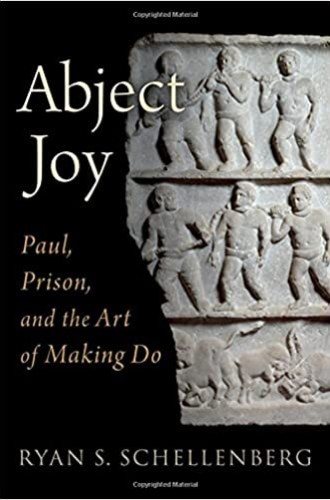Christians who care about mass incarceration do not often turn to academic biblical scholarship to fuel their understanding of American prisons, but that is just what Ryan Schellenberg offers in his new book. He starts with a basic observation: not only was Paul imprisoned, but Paul was imprisoned a lot. Clement of Rome claims that Paul was seven times behind bars; Paul says simply that it was “far more imprisonments” than his rival apostles (2 Cor. 11:23). Using biblical texts, other ancient sources, and the experiences of currently incarcerated people, Schellenberg seeks to answer a basic question: What type of person must Paul have been to have been imprisoned so many times?
In a detailed yet accessible survey of ancient Greek and Roman carceral tropes, Schellenberg reviews the types of prisoner that the Christian tradition has imagined Paul to be: Paul the philosopher, Paul the political prisoner, Paul the wrongfully accused, Paul the Roman citizen demanding trial, and Paul the martyr. He then challenges the notion that these are the best carceral tropes for understanding Paul, noting that these tropes most often involve singular incarcerations of high-ranking people that result in execution or exile.
Schellenberg then documents how poor, itinerant people considered to be a public nuisance bore the brunt of “casual administrative violence” as well as short-term imprisonments under local magistrates as a means of “keeping the peace.” Borrowing a term from Jennifer Glancy, Schellenberg suggests that to take the biblical witness seriously, we must accept that Paul inhabited a “whippable body,” one that could be hit or locked up by local authorities with impunity for something like what we would call disorderly conduct. Paul’s was one among many bodies treated this way in the ancient Roman world: poor, homeless, and of an ethnicity that marked him as part of an occupied people. Which is to say, Paul looked a lot like those who get overpoliced and thrown in jail today.






